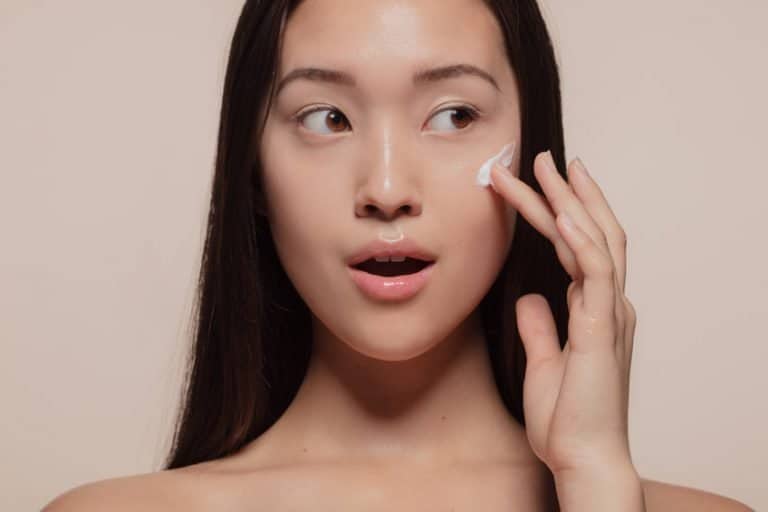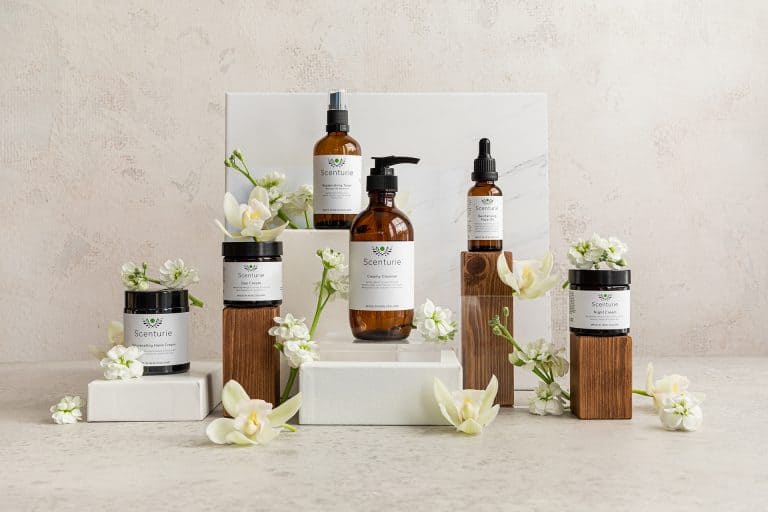Parabens and Sulfates: Ingredients to Avoid in Skincare Products and What to Shop for Instead
Could your favourite beauty products be harmful to your health?
Parabens and sulfates are two common cosmetic components that top the list of toxic ingredients to avoid for various reasons. If you’ve been hearing a lot of talk about clean beauty lately and wondered what you can do to get on board, one of the best places to start is learning about harmful ingredients to watch out for in your cosmetics.
To help you get started, here’s a little breakdown on two harmful ingredients that are still quite common in beauty products today.

Bad news ingredients – why you should avoid parabens and sulfates:
Parabens
Parabens are synthetic chemicals used as preservatives in many beauty and household products worldwide. They appear on ingredient lists with names such as: isobutylparaben, butylparaben, isopropylparaben, methylparaben, ethylparaben, and propylparabens. Added to many formulas to prevent the growth of mold and bacteria, parabens are what help prolong the shelf-life of cosmetics. Parabens have been around since the 1920’s, but unfortunately, in more recent years, science has linked parabens to a host of serious health issues.
Alarmingly, research has shown that parabens can penetrate our skin barrier, enter our blood stream, and cause disruption of our endocrine system by mimicking hormones like oestrogen. This disruption of our body’s natural hormone signals can cause chemical imbalances within our body that can affect fertility leading to reproductive and developmental issues. Studies have also suggested that parabens could play a role in the development of human breast, ovary, and testicular cancer. For these reasons, many countries have banned the use of some parabens in personal care products. Parabens can also cause skin irritation, and there is research to suggest that there is a correlation between parabens in SPF products and damaged coral reefs.
While limited quantities of parabens are considered harmless and are not regulated by the FDA, the problem lies in repeated exposure with daily use of certain formulas. In fact, one 2018 study found teenage girls who regularly wore makeup tested positive for 20x the normal amount of propylparaben compared to those who did not or rarely wore makeup.
You may ask: “Why do companies continue to use parabens if they are so bad for us and the environment?”. One major reason is because they are cheap to manufacture, which ultimately means bigger profits!
Given the damage that can be caused to the endocrine system, reproductive system, and the environment, long-chain parabens (methyl-, isobutyl-, butyl-, isopropyl- and propylparaben) should not be used in personal care or cosmetic products.
Read more about: The Dangers of Parabens in Skincare.
Always check ingredient lists and know what you are putting onto and into your body!

Sulfates
Sulfates (also known as sulphates) are used as cleansing and foaming agents appearing in everyday health, beauty, and skincare products like body washes, detergents, shampoos, toothpaste, and many other household and personal care products. They are synthetic chemicals derived from fatty alcohols, made from palm kernel oil or petroleum oil sources.
Sulfates belong to a class of cleansers called anionic surfactants, with the most common sulfate compounds known as sodium lauryl sulfate (SLS) and sodium laureth sulfate (SLES). Sulfates are hugely problematic both for the skin and the planet.
In beauty products, sulfates are used to help with foaming, lathering and cleansing, however, they are commonly reported as skin irritants, stripping away the skins natural oils and leaving it feeling dry, irritated and inflamed. Studies have shown that sulfates can penetrate the skins barrier, cause damage to cellular membranes, and cause reactions in sensitive skin types leading to itchiness, watery eyes, and even dermatitis. Research has also shown that using shampoos with sulfates can cause scalp irritation, excessive drying of hair and skin, and even hair loss. Perhaps what is even more concerning is the negative impact sulfates have on our environment. Sulfates are mainly petroleum-derived, but they can also be manufactured from coconut or palm oil. Petroleum products and palm oil are controversial due to their association with natural habitat destruction, climate change, pollution, and greenhouse gases.
The interesting thing is that sulfates are not actually necessary! The lather, froth and foam we have become conditioned to expect when using sulfate-containing products is NOT NEEDED, and it is NOT what does the cleaning. You do not need a lather, froth, or foam to effectively clean your skin or hair.

What to shop for instead
If all of the above sounds like bad news, the good news is that parabens and sulfates are completely unnecessary for formulating products. As more and more consumers demand cleaner cosmetics, your options for shopping paraben- and sulfate-free are expanding. By simply checking ingredients and making empowered choices, you will be able to easily make the switch to clean beauty in no time. We recommend always looking for simple formulas with plant-based ingredients that you recognize (and can pronounce.)

At Scenturie, we are committed to creating skincare products that are better for your skin, your body and the planet as well. We use only pure, plant-based, sustainable ingredients, and promise never to use toxic additives including parabens, sulfates, glycols, silicones, mineral oils, phenoxyethanol, and phthalates. We also avoid synthetic fragrances and use only botanical essential oils to bring you clean, holistic, beauty and skincare, just the way nature intended.
Visit our website to learn more: www.scenturie.co.nz

Natural Skincare

References
Parabens in Cosmetics By The Food & Drug Administration
https://www.fda.gov/cosmetics/cosmetic-ingredients/parabens-cosmetics
What Are Parabens? By Tasha Stoiber, PhD, for The Environmental Working Group https://www.ewg.org/what-are-parabens
Should People Be Concerned About Parabens? By Scientific American
https://www.scientificamerican.com/article/should-people-be-concerned-about-parabens-in-beauty-products/
Should You Be Going Sulfate Free? By Daniela Ginta, Medically reviewed by Debra Rose Wilson, Ph.D.
https://www.healthline.com/health/beauty-skin-care/sulfates
Why Are Sulfates Bad for You? By Shaziya Allarakha, MD, Medically reviewed by Pallavi Suyog Uttekar, MD
https://www.medicinenet.com/why_are_sulfates_bad_for_you/article.htm




